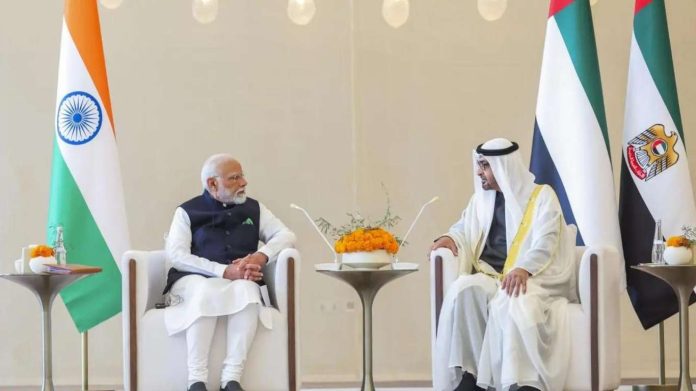Prime Minister Narendra Modi and UAE’s President Sheikh Mohamed bin Zayed Al Nahyan together launched the UPI RuPay card service here on Tuesday.
President Nahyan swiped a card embossed with his name to mark the start of the service in Abu Dhabi. “We are embarking on a new FinTech era with the launch of my UPI RuPay card and your Jaywan card,”
The launch follows the inking of several bilateral agreements between the two countries on Tuesday, including the interlinking of instant payment platforms.
What is RuPay?
The RuPay card is the Indian equivalent of Mastercard or Visa. Billed as a highly secure indigenous system, it is widely accepted across India with more than 750 million cards reportedly in circulation.
Explaining the benefits of the partnership last year, India’s Minister of Commerce and Industry Piyush Goyal spoke of how the interlinked domestic card system would reduce exchange risks and boost travel between the two countries. UAE cards can be used in India, while RuPay cards issued in India can be used in the Emirates. What’s more, all transactions will be carried out in local currencies.
Some of the other bilateral agreements announced include the interlinking of India’s UPI and UAE’s ‘Aani’ payment systems to facilitate seamless cross-border transactions between the two countries. Aani includes a convenient feature that allows users to transfer money immediately using only the recipient’s phone number.
The leaders also discussed the strengthening of energy partnerships. They appreciated that, in addition to the UAE being among the largest sources of crude and LPG, India is now entering into long-term contracts for LNG.
PM Modi was in town on a two-day visit ahead of the opening of the BAPS Hindu Mandir temple in Abu Dhabi on February 14.
Another agreement on inter-linking domestic debit/credit cards was signed vis-a-vis RuPay (India) with JAYWAN (UAE), which would serve as an important step in building financial sector cooperation and enhancing the universal acceptance of RuPay across the UAE.

